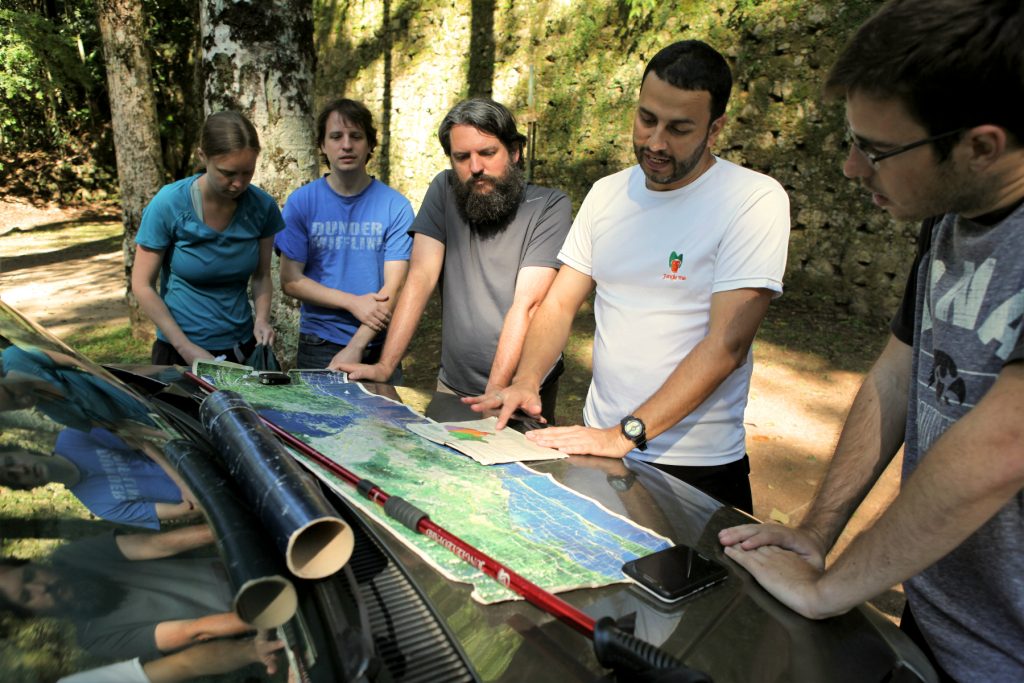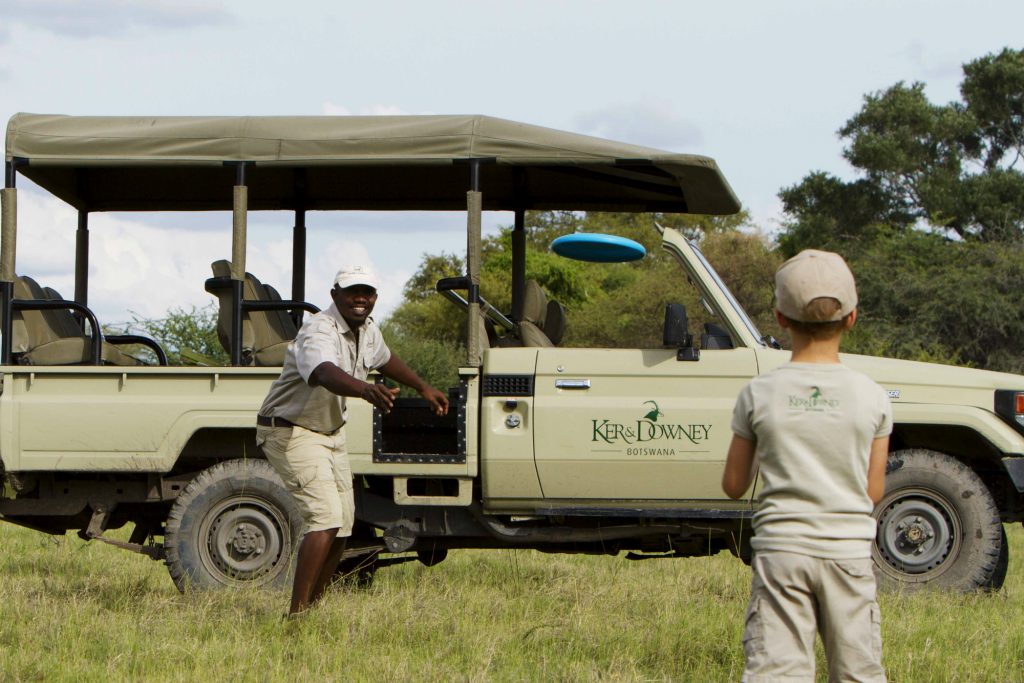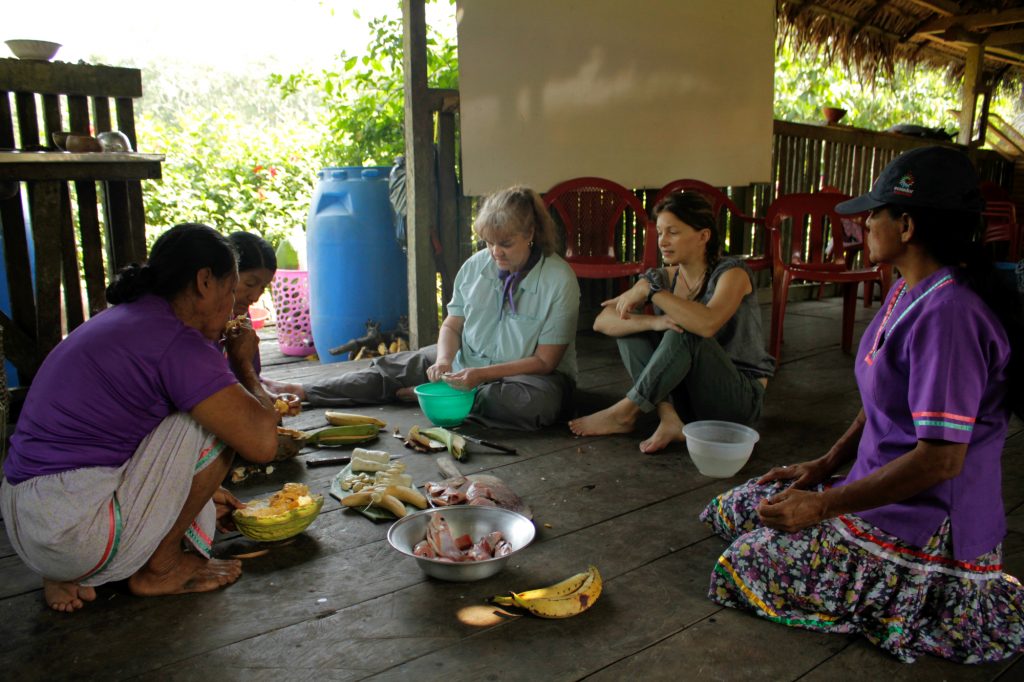Prior to departure, Project X travelers engage in in-depth, personal conversations with Explorer X staff. During these discussions, they’re encouraged to be vulnerable, talk about their motivation, and consider what they’re truly seeking from a travel experience. The team then puts together an itinerary meant to maximize personal transformation while clients are encouraged to set intentions, be mindful of the entire travel journey, and be prepared for anything and everything. That last point is the key to this experience, because travelers don’t know where they’re going until they’ve arrived at the airport on the day of departure.

“Our hope is that by releasing the expectations of place, you’re able to take the journey within, harken back to the roots of travel, slow down, engage more fully, open up for unplanned exploration, and recalibrate your inner compass,” said Jake Haupert, chief explorations officer at Explorer X.
People are increasingly seeking out opportunities that lead to personal growth, learning, and transformation when they travel. It’s not enough simply to “go.” People want to evolve and enhance their worldview, preconceived notions, and personal perspectives, ultimately becoming better world citizens as a result.
This change in travel mindset has led tour companies to increase their focus on experience design. As a result, the adventure travel sector has seen an explosion of offerings that go well beyond a simple bike ride or hike through the mountains. Indeed, every trip offered by every tour company is distinct in its own right. Each itinerary includes novel touches — carefully crafted routes, interactions with certain local community members, activities determined based on travelers’ interests — all wrapped in that special something that defines a specific tour company. However, a few key features immersed in these experiences — education, social outreach, and overall trip design — seem to do a particularly good job at turning an ordinary itinerary into one that leaves a lasting impression.
Education Grounds Travel to a Sense of Place
Nothing exists in isolation. People may travel to “get away,” but every place develops as a result of its cultural and physical environment. One of the key components of meaningful travel involves learning about unfamiliar people, places, cultures, and social issues, often challenging or encouraging internal reflection.
Embracing this idea, the Explorers Passage bases each of its itineraries on a story. “Our adventures offer a step back in time and into the boots of some of the world’s more profound explorers, leaders, and luminaries who have changed the course of history,” said Jeff Bonaldi, founder and CEO of the company. We work to have ‘the story’ unfold seamlessly throughout our travels, bestowing on clients a newfound appreciation and understanding of the people and places we explore.” This requires lots of research, conversations with several subject-area experts, and creating a route that weaves in the details of a particular story arc. The result is a thoughtfully considered trip with meaning and intention behind each itinerary decision.
Education doesn’t have to be all-encompassing to be meaningful, however. At Jungle Me, for example, every tour begins with a detailed history and geography lesson about Rio de Janeiro and Brazil. Though this lesson may only last 25 minutes, it's meant to connect the area’s history, politics, and nature in a way that helps travelers reflect and understand the things they see and encounter in Tijuca Forest and the city.

Learning opportunities aren’t necessarily reserved only for adults, which is the idea behind the Ker & Downey Botswana’s Young Explorers’ program. This family friendly experience lets parents enjoy some downtime while kids participate in activities designed to be both educational and inspiring. “The Young Explorers’ emphasis is on learning how to track game — both on foot and in 4x4 safari vehicles. We also teach children how to make small animal traps and how to start a fire from nothing more than two sticks,” said managing director Francesca Hird. Throughout their trip, children also learn how to recognize different animal spoor, identify a range of birds, try poling the local canoe called a Mokoro (subject to water levels), operate a game drive vehicle, fish, and shoot an air rifle at tin cans.
Social Giving As a Form of Transformation
Most tour companies now incorporate charitable causes into their business models, and, in fact, some create entire itineraries based on social issues. Beyond financial contributions and thoughtful community-based interactions, however, some businesses have adopted particularly noteworthy ways of giving back.
Ashley Blake, founder of Traverse Journeys, reflected deeply on the idea that both travel and philanthropy can have unintended negative consequences if not executed mindfully when she created her impact-focused company. “I wanted to find a way that travelers could become geographically grounded in the place they were visiting, with real interactions with those that live in the community and are working hard to make improvements in their own world,” she said. “I wanted it to be a two-way exchange: Travelers gain a transformative experience through learning, interaction, and knowledge, while locals get to share about their struggles, triumphs, and incredibly important work that they’re doing — often both for the local community and globally.”
This led to Traverse Journey’s social giving model: Clients on every trip participate in an activity with an on-the-ground non-profit community partner, such as cooking classes with a women’s co-op in the Ecuadorian Amazon, learning about heritage seed saving in Ireland, and participating in ocean conservation in Croatia. Additionally, each trip generates a donation of five percent of sales that go directly to that partner, directly and specifically allowing travelers to see how and where their contributions will be used to continue important grassroots work.
Like Traverse Journeys, TDA Global Cycling’s social contribution grew out of founder and director Henry Gold’s personal experiences working with an aid group in Africa. Gold wanted to address low-cost transportation needs on the continent, so he developed the Tour d’Afrique, a cross-continent cycling race running from Cairo to Cape Town, to fund bike donations for locals in the communities along the route. Since 2003, the company’s TDA Foundation has donated one bicycle for each full-tour rider who participates in the Tour d’Afrique and, beginning this October, one bicycle will also be donated for each cyclist participating in the West Africa en Vélo. Many riders also raise funds for additional bikes, and more than 2,400 have been donated so far.
Innovative Trip Design Encourages Traveler Growth
And then there are tour operators that completely rethink what an adventure experience should be like and how it should be presented to potential travelers. Though Project X may be Explorer X’s most extreme example of encouraging travelers to embrace personal growth, the company’s philosophy of transformation is built in to everything the company offers. “We created Explorer X to bring travel to life, illuminating the benefits of bringing a higher consciousness to travel,” Haupert said. “By taking the journey inward, the traveler is invited and mentored to use the opportunity to reconnect with self and engage the adventure with more intention, mindfulness, and a burning desire to go out of comfort zones.”

Recognizing not every traveler is looking for an earth-shattering personal transformation, Explorer X’s website points out that simply being open to new ideas and connecting with new people and cultures can positively enhance life. As such, every itinerary begins with a phone call — a Call to Adventure — that gets to the root of why someone wants to travel and the trip’s purpose. Prior to departure, Explorer X may offer suggested reading or movies and invite travelers to embrace certain rituals. During a trip, travelers are encouraged to use a journal guiding the journey with questions, challenges, and activities, which can then be used to implement changes upon return.
Like Ker & Downey Botswana’s back-to-nature activities, Escapade Sweden adopts a trip design helping travelers reconnect with the environment. With the goal of addressing “nature deficit disorders,” the company’s tailor-made itineraries are created with its underpinning ideologies of “Rewilding of Humans” (for all ages) and “Wild Child” (the family friendly version).
“We see the need for a return to using our instincts and connecting to the natural environment in a more hands-on way,” said Åsa Lind Chong, CEO of Escapade Sweden. “Currently we live longer but are no happier. We have to bridge the great disconnect between the digital and natural worlds and see adventure travel with the underlying new philosophy of rewilding humans as a way to do this.” This means all of the company’s adventures include activities such as making fires, cooking and eating outside, learning bushcraft, and wilderness survival appropriate for each season such as foraging and fishing.
In addition to strengthening relationships with oneself and nature, experiential trip design can also help create better relationships between parents and their children. A 12-day joint venture between Tierra del Volcán and Outward Bound Ecuador allows parents and their kids to enjoy Ecuador’s adventurous side while also working through programming meant to strengthen family ties by reflecting on the values of support, respect, love, understanding, and trust.
Many activities such as participating in a high ropes course, kayaking, and horseback riding are followed by facilitated conversations meant to have a positive, lasting impact on the familial relationship after the trip has come to an end. “There is no better gift to your kids than your time with them, and no better way to spend your time than having fun, connecting, and creating ‘legendary moments’ together,” said Jorge Perez, general manager of Tierra del Volcán. “We also focus on providing tools for the future, like sharing with parents situational leadership and other basic coaching tools they could use on a daily basis with their kids.”
Ultimately, regardless of whether travelers intentionally seek out these more impactful experiences (and an increasing number say they do), many tour operators likely aim to offer more than planned activities in a new destination. These unique touchpoints don’t have to change the face of adventure travel in order to be meaningful, but they are the catalyst for turning an ordinary trip into a transformational experience.
